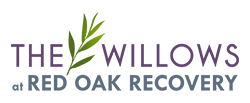 Opioids are powerful, dangerous drugs. In 2023, around 12 North Carolina residents died daily due to an opioid overdose. At Red Oak Recovery, we help men living with opioid addiction quit using and find a better way forward. Our licensed clinicians lead our substance abuse treatment programs using evidence-based methods to provide our clients with the tools they need to make lasting change.
Opioids are powerful, dangerous drugs. In 2023, around 12 North Carolina residents died daily due to an opioid overdose. At Red Oak Recovery, we help men living with opioid addiction quit using and find a better way forward. Our licensed clinicians lead our substance abuse treatment programs using evidence-based methods to provide our clients with the tools they need to make lasting change.
Dependence leads to opioid use disorder
Opioids are highly addictive substances. Heroin and fentanyl are opioids, so are prescription painkiller drugs like oxycodone and hydrocodone. Some people start taking opioids after a medical procedure or accident to help them manage pain. Others start by experimenting with illicit opioids. Either way, many people quickly become dependent on them. That’s because, in addition to potent pain relief, opioids are relaxing, which can be intoxicating for people who have a lot of stress. Even if someone’s physical pain subsides, they may completely rely on opioids to feel relaxed. Being dependent is a clear sign of opioid use disorder (OUD)—also known as opioid addiction—and professional rehab is the safest way to stop using.
Signs of opioid addiction
- Uncontrollable cravings and inability to stop using opioids
- “Doctor shopping,” or having several prescriptions for the same medication
- Problems at home, work, or school
- Financial or legal trouble related to opioid abuse
- Mood swings from euphoric to unhappy or angry
- Slurred speech
- Small pupils
- Chronic constipation and nausea
- Sensitivity to pain
- Cognitive impairment
How to choose a treatment program
Quitting opioids isn’t just a matter of willpower; it requires effective intervention that considers the unique needs in your life. The rehab program you choose should provide personalized treatment for the disease of addiction. Look for licensed, qualified clinicians at an accredited treatment center. Make sure they create individualized treatment plans that use evidence-based methods like medication-assisted treatment (MAT), talk therapy, and other support services that help build the foundation for recovery.
You’ll also want to look for the right level of care. Inpatient and residential programs provide 24/7 medical monitoring and care, while outpatient programs offer more flexibility but may include supportive housing.




